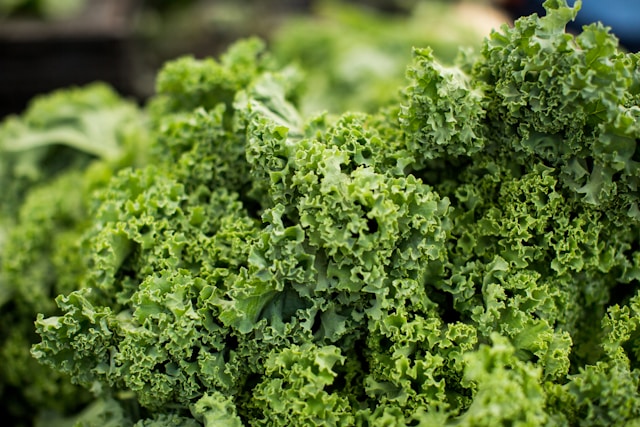Dietary Fats for Optimal Health: Understanding Types & Impact
January 11, 2017
There was a time when health enthusiasts used to look down upon fats and (all) fatty foods. However, fortunately, scientists have now found out that not all fats are bad for health; in fact, some fats are essential for our health and life. Earth’s Wisdom takes the opportunity of throwing light on some of the fat facts that are necessary for our health.
Why are Fats Essential?
All foods available naturally around us contain at least some amount of fat because all plants and animals need fat as the primary source of energy. Fat is also required for growth and functioning when there is a scarcity of food supply (or sunlight in case of plants). It’s enough to know the importance of fat that in humans, fat is an essential part of the cell membrane as it is made from lipoproteins (lipo = fats).
Role of Fat in Our Health
Source of Energy: We all know that fats are rich in calories (9 calories per 1 gram of fat) and therefore fat is an excellent source of energy.
Proper Function of Nervous System: The axons of our neurons are covered by a layer called myelin sheath which is made of 80% of lipids. Therefore fats are essential for proper functioning of our nervous system.
Absorption of Vitamins: Vitamins are very essential for our health and they are either water soluble or fat soluble (vitamins A, D, E and K). Those which are water soluble are easily absorbed in water and transported throughout the body. But fat soluble vitamins need fats to get absorbed in the body.
Formation of Steroid Hormones: Fat is essential in the formation of steroid hormones which in turn are necessary for controlling metabolism, immune functions, inflammation, salt and water balance, ability to stand injury and illness and development of sexual features.
Choosing Healthy Fats
As with any other food ingredients, excess amount is bad in case of fats too. It’s also a fact that there are good fats and bad fats. The 2005 Dietary Guidelines by the US Department of Agriculture recommend that 20% to 35% of calories should come from fats for adults. Generally for the growing problem of obesity, fats are held responsible. However, obesity is much more than overeating of a single food ingredient such as fat. Calories are gained by all food ingredients, including proteins and carbohydrates. Eating more calories, spending less of them, heredity, gender, age and lifestyle also play an important role in weight gain. However fats do contribute significantly to weight gain as they are more tempting and are easily eaten in more quantities, thereby providing more calories. Therefore we should know well about the good fats and bad fats.
Saturated and Trans Fats: These are the bad guys and come from animal products like high-fat dairy, meat, poultry and eggs and vegetable sources like palm oil. They are known to elevate cholesterol levels, clog blood vessels and increase the risk of heart disease.
The other bad guy i.e. trans fats are of two types, of which natural ones are harmless, but artificial ones used in fried and baked foods, icings, crackers, popcorn etc are harmful.
Unsaturated Fats: These are the good guys and include monounsaturated fats and polyunsaturated fatty acids. When eaten in moderation in place of trans or saturated fats they can help reduce cholesterol levels and the risk of heart disease. Polyunsaturated fats are usually found in vegetable oils. The famous Omega-3 fatty acids, a kind of polyunsaturated fats, are known for their benefits to cardiac health. Omega-3s are found in fish like catfish, trout, mackerel and salmon, nuts like walnuts and seeds like flaxseeds. Especially those in fish, i.e. the long-chain omega-3s are the most effective.
Monounsaturated fats are found in good quantities in the Mediterranean diet, mainly in olive oil and also in hazelnuts, Brazil nuts, sesame seeds, canola, peanut oil, pumpkin seeds, avocados and almonds. These too are supposed to reduce the risk of heart disease and mainly contain the beneficial antioxidant vitamin E.
Conclusion
In conclusion, dietary fats are an essential component of a healthy diet and play a crucial role in maintaining optimal health. Understanding the different types of fats, their sources, and their impact on the body is key to making informed choices about what to eat. While it's important to limit the intake of saturated and trans fats, healthy fats like monounsaturated and polyunsaturated fats have numerous health benefits and should be included in our daily diet. Eating a balanced diet that includes a variety of whole foods and healthy fats can help reduce the risk of chronic diseases and improve overall health. So, make sure to choose your fats wisely and enjoy the many benefits they have to offer!
It's important to remember that a healthy diet is not just about the types of fats we consume, but also the overall balance of our diet. Eating a diet rich in whole, nutrient-dense foods such as fruits, vegetables, whole grains, lean proteins, and healthy fats is key to maintaining optimal health. Additionally, regular exercise and a healthy lifestyle, including getting enough sleep, managing stress, and avoiding smoking and excessive alcohol consumption, all play a significant role in our overall well-being. By making informed choices about the types of fats we consume and adopting healthy lifestyle habits, we can promote optimal health and reduce the risk of chronic diseases, leading to a happier and healthier life.
Leave a comment
Comments will be approved before showing up.
Also in Wisdom News

The Importance of Vitamin K2: Unlocking its Role in Health and Wellness
September 22, 2024

The Importance of Omega-3 Fatty Acids: A Comprehensive Review of Their Effects on the Body
August 02, 2024

The Benefits of Mindfulness Meditation for Mental Health
July 12, 2024
Disclaimer: These statements have not been evaluated by the FDA. These products are not intended to diagnose, treat, cure or prevent any disease.
© 2026 Earth's Wisdom®. All Rights Reserved.




